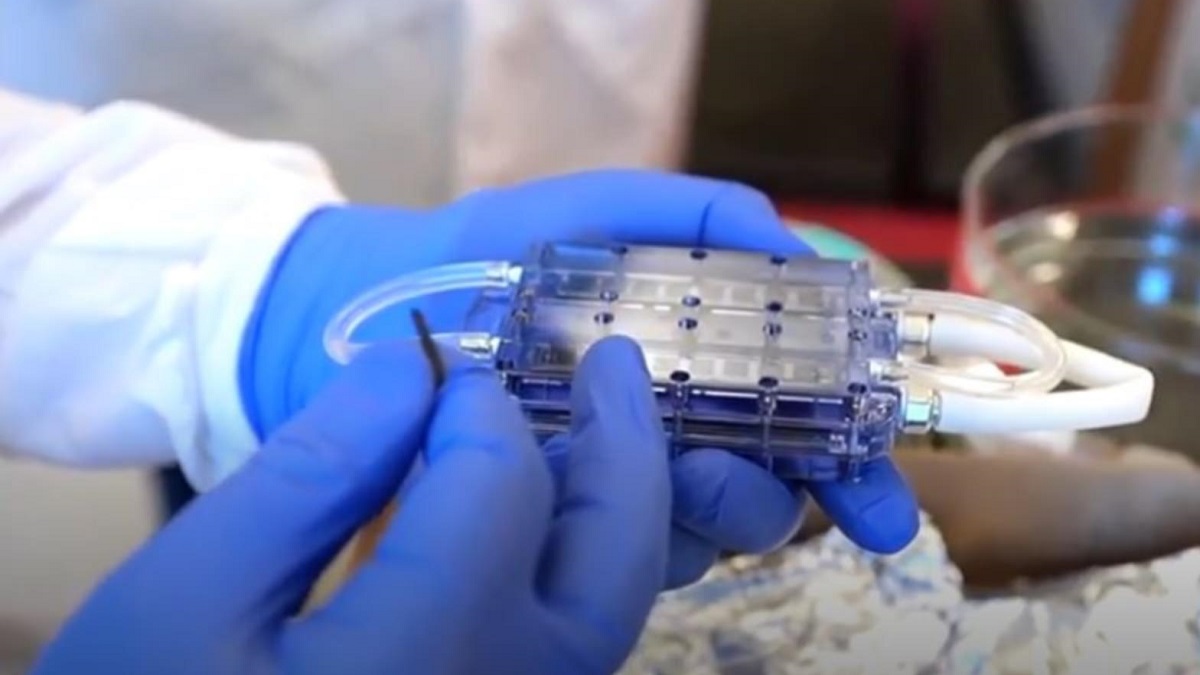Kidney dialysis can disrupt a patient’s life. The American Kidney Fund reports that kidney disease is becoming more prevalent, particularly among people of color, who are at a higher risk of kidney failure.

A potential solution to disrupt the kidney dialysis and transplant process is an implantable bio-artificial kidney.
This device utilizes silicon nanotechnology membranes for filtering and human kidney cells for various functions such as electrolyte balance and Vitamin D production. The cells were obtained from cadaver kidneys, ensuring they remained functional and adaptable to the artificial environment of the device.
The device is powered by blood pressure and has shown success in pig trials.
The project, led by biomedical engineer Shuvo Roy, acknowledges the urgency of the kidney disease problem. Scaling the technology to human size and function will require research funding, philanthropy, and collaboration with private industry.
Clinical trials will also be essential to test the bionic kidneys, a process that could take three to four years.
Meanwhile, patients who have been waiting years for a kidney transplant are eager for advances that can improve their quality of life and increase their chances of receiving a transplant.
